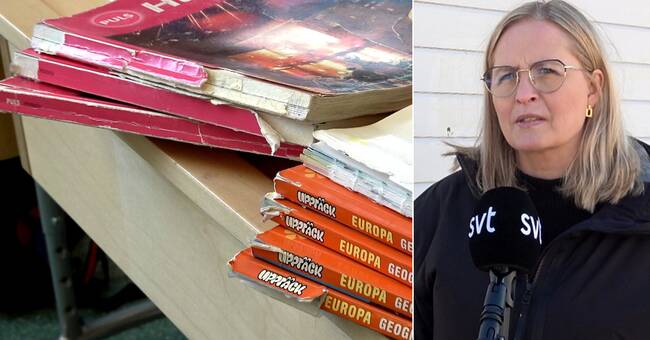SVT Nyheter Västerbotten has spoken to several teachers in pre-school and primary school who are very critical of access to school books and digital aids.
A strained budget worsens the situation even more, they say.
In the classroom of class 6B at Grisbackaskolan in Umeå, the accounts of the history of the Balkans have just been completed.
Now reading comprehension awaits.
They have a cozy, cozy classroom on the second floor and the students work well.
This morning they also have half class.
But not everything is ok, says Dan Åberg, middle school teacher and assistant association representative at the Swedish Teachers' Association.
Old and broken books
The lesson work material is a copied compendium and the school's book sets are old and often broken.
- The books on the bookshelf here in the classroom, puzzles and other things, I bought myself.
There is simply no money to buy current teaching materials.
When the students in class 6B have to answer for themselves what they think of their teaching materials, many raise their hands.
Many of their books are worn out and some have too old facts, they say.
Do students have access to the books needed?
- I would not say that they have, says Dan Åberg.
Finding facts online is a challenge
He says that when the money is not there, teachers often use free licenses and try-out licenses for the digital teaching material.
- It's quite stressful.
You commit to a one-month free subscription.
If you then want to continue, there is no money.
Then maybe you book a new month in your partner's name.
For students in primary and middle school, searching for facts online is also a challenge when it must not cost money.
- They go to Wikipedia, among other places.
There, the information is written by adults for adults, not for children.
We want the municipality to pay for licenses for, for example, the National Encyclopedia, which is available in an easy-to-read version, so that there is a wider range that all teachers have access to, says Dan Åberg.
Education director Ann-Christine Gradin in Umeå municipality tells SVT they are aware of the problem and will now invest in a digital portal for teaching materials to improve the situation.

